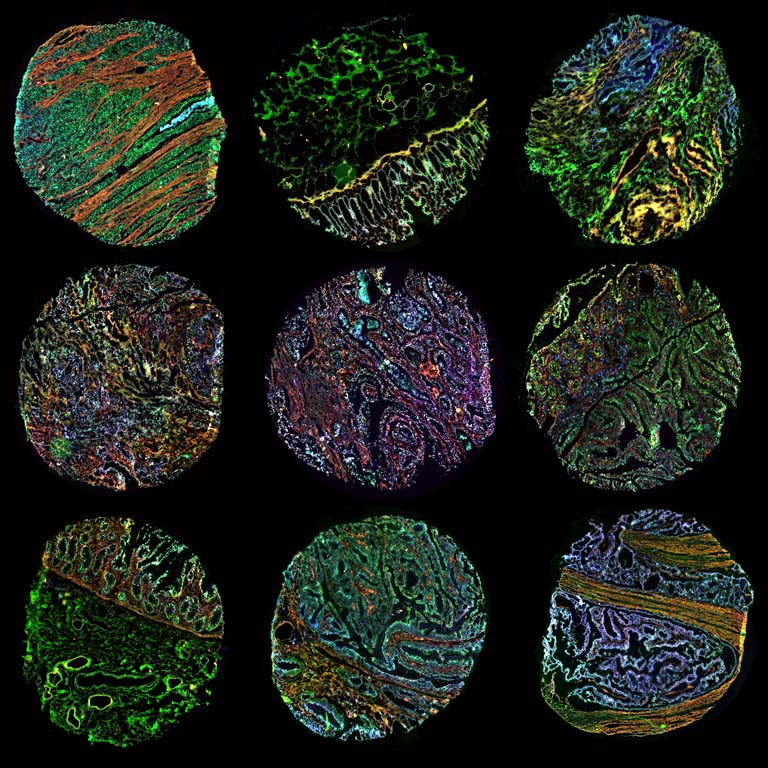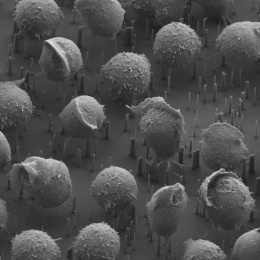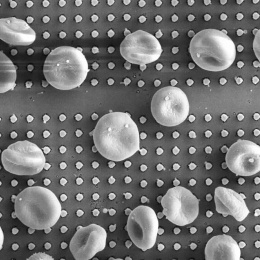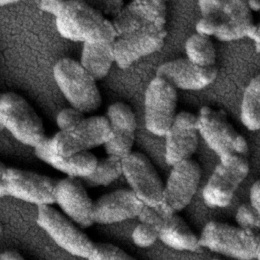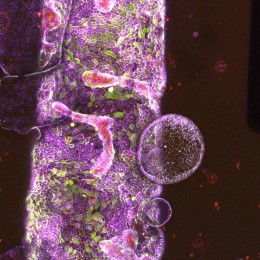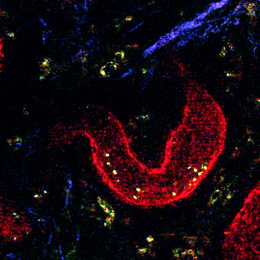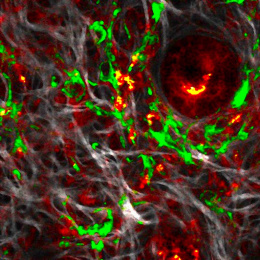Nanosensors for Personalized Medicine
Nanosensors for Personalized Medicine
Collections: Precision Cancer Medicine
Jaideep S. Dudani, Ester J. Kwon, Sangeeta N. Bhatia
Koch Institute at MIT, Institute of Medical Engineering and Science
The character of tumors differs greatly from person to person. When deciding what treatment to give a patient, access to more information about the tumor’s behavior can help a clinical team pick the therapy that has the best chance of being effective. We built a tool, called a nanosensor, which can be applied to thin slices of a tumor biopsy sample to tell us about some of the behaviors of that individual cancer. Our nanosensor technology combines two individual functions: first it finds and sticks to receptors that are present on tumor cells, and if those tumor cells produce unusual levels of an active protein, called an enzyme, the nanosensor releases a signal. This image shows a collection of thin slices of colon cancer tissue from different patients. To these biopsies, we added our nanosensor, which is marked in green. The cancer cell receptor that serves as the target for the nanosensor is marked in red, and the enzyme is shown in cyan. The different samples show very different patterns of expression, which is a visual reminder that not all tumors are the same – and even individual tumors vary from place to place. We are working on using these nanosensors to determine which medicines might the best match for each tumor pattern.
